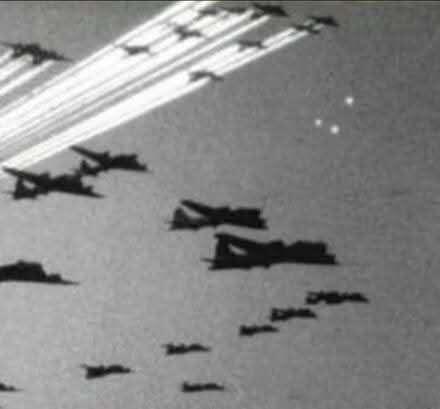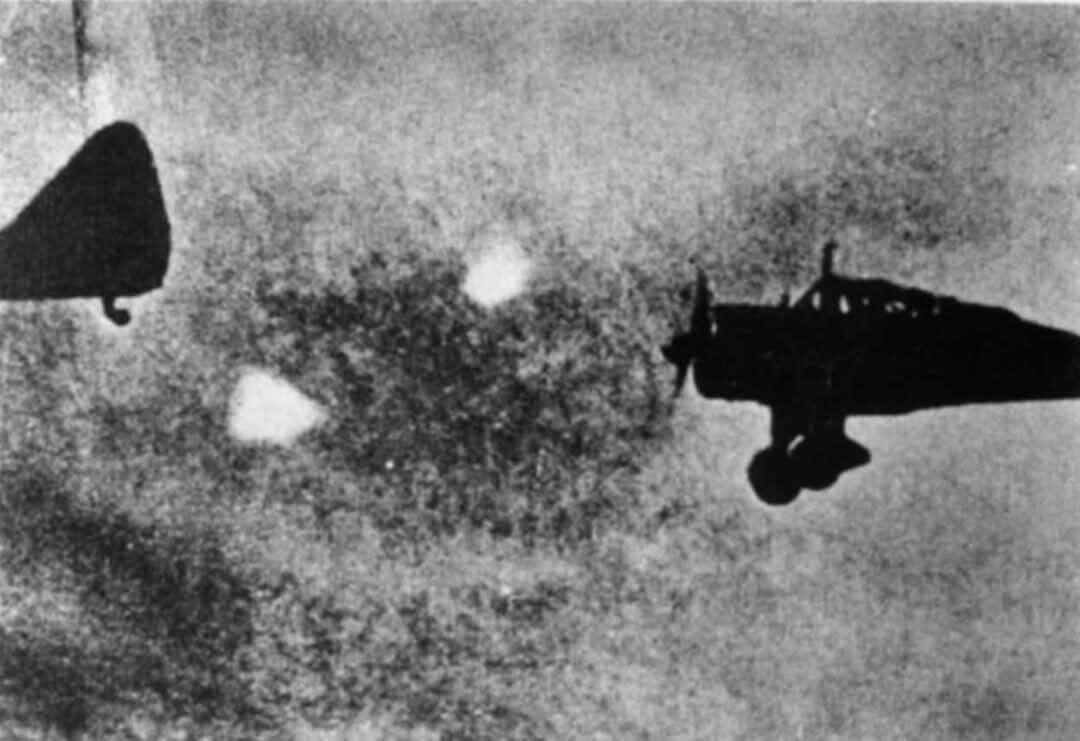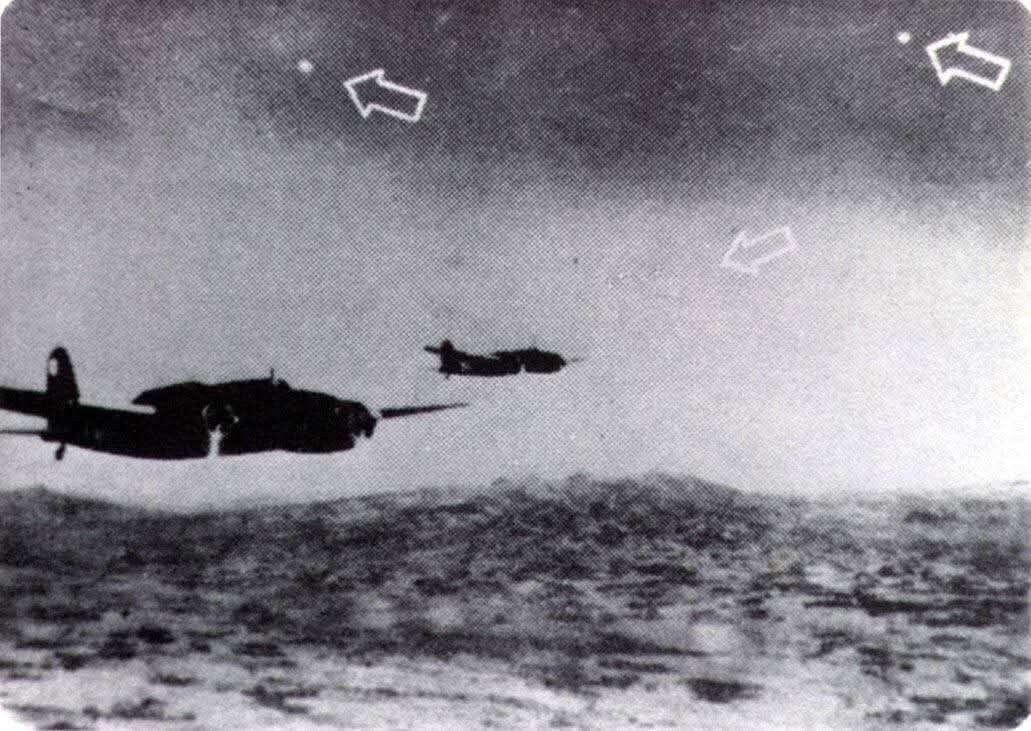🌊 SURF 'N TURF 🏝️
-THE BITCOIN BORACAY ISLAND LIFE-

Foo Fighters of WW2
Of all the stories to emerge from the chaos of World War II, some of the strangest didn’t come from the trenches or battle-scarred cities, but from the skies above them. Imagine the scene: fighter pilots gripping the controls of their aircraft, nerves taut, eyes scanning for enemy planes—and suddenly, something utterly inexplicable darts into view. Glowing orbs, strange lights, and fast-moving objects with impossible agility appeared alongside Allied and Axis pilots alike. These weren’t enemy fighters or weather balloons. They were dubbed “foo fighters,” and they quickly became one of the war’s most persistent mysteries.

The name “foo fighter” itself came from the U.S. 415th Night Fighter Squadron. It all started in November 1944 when Lieutenant Edward Schlueter and his crew spotted a series of bright orange lights over the Rhine near Strasbourg. Despite their attempts to shake them off with high-speed maneuvers, the lights kept pace with ease, flickering and dancing in the darkness before vanishing into thin air. What’s more, ground radar detected nothing. It was Lieutenant Donald Meiers, the radar operator, who began calling these strange lights “foo fighters,” a term borrowed from the comic strip "Smokey Stover" where the phrase “Where there’s foo, there’s fire!” was a regular gag.
What makes the foo fighters so intriguing is the sheer volume and consistency of reports. Pilots described glowing spheres and discs that displayed intelligent, responsive movement. They would tail aircraft, mirror their movements, and sometimes zip ahead before vanishing. These reports weren’t limited to one side of the war either—both Allied and Axis forces encountered them, each assuming at first that they might be witnessing some secret weapon or advanced technology deployed by the enemy. But as intelligence operatives gathered testimonies, it became clear: nobody had any idea what they were dealing with.

By January 1945, the sightings were so frequent that they hit the press. An Associated Press article described how these “balls of fire” seemed to be under intelligent control, trailing American planes without ever engaging in combat. The public, already gripped by the wonders and horrors of wartime technology, was fascinated. But behind the headlines, military officials were at a loss. Neither American nor German research turned up any evidence of experimental aircraft matching the foo fighters' capabilities.
Over the years, various explanations have been offered. Some scientists suggested natural phenomena, such as St. Elmo’s fire, a form of plasma discharge that can occur around aircraft in certain atmospheric conditions. Others pointed to ice crystal reflections or electromagnetic disturbances. However, none of these theories fully accounted for the objects’ bizarre behaviors—their sudden turns, rapid acceleration, and ability to outmaneuver the fastest planes of the era. It was almost as if the lights had a consciousness, anticipating and reacting to the pilots’ actions.
In recent times, interest in foo fighters has resurfaced thanks to broader discussions around UFOs and unexplained aerial phenomena. In fact, a 2024 scientific study suggested that these World War II sightings might be linked to plasmas—specifically, ionized gases that could be drawn to the electrical fields generated by aircraft engines. These plasmas, the researchers theorized, might behave in ways that appear almost biological, changing shape, replicating, or following electromagnetic patterns. It’s a fascinating idea, but like many theories before it, it still leaves plenty of unanswered questions.
What’s undeniable is that the foo fighters represent one of the earliest, best-documented cases of strange aerial phenomena—occurrences that challenge our understanding of physics, technology, and maybe even consciousness itself. The reports are compelling not only because of their consistency but also because they came from highly trained military pilots—men whose very survival depended on their ability to distinguish friend from foe, real threats from illusions.
For me, the foo fighters remain one of the greatest unsolved mysteries of the 20th century. Were they natural phenomena, misunderstood enemy technology, or something far more otherworldly? We may never know. But every time I dig into wartime archives or listen to old interviews with those veteran pilots, I’m struck by the same feeling: whatever was up there, it wasn’t something anyone on Earth was prepared for. And that’s exactly the kind of story that keeps me searching the skies—and the shadows—for answers.
Credits Goes to the respective
Author ✍️/ Photographer📸
🐇 🕳️
#Apocalypse #Music #Movies #Philosophy #Literature #scuba #architecture #art
